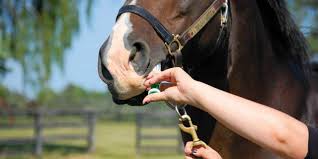
Keep Your Horses Healthy: A Guide to Deworming
As a responsible horse owner, ensuring the health and well-being of your equine companions is of utmost importance. Deworming is a crucial aspect of horse care that should not be overlooked. But how do you go about creating a deworming schedule for your horses, and why is it so important?
What is deworming and why is it necessary?
Deworming is the process of administering medication to horses to eliminate internal parasites, such as worms. These parasites can cause a range of health issues in horses, including weight loss, colic, and even more serious conditions if left untreated. Regular deworming helps to keep your horses healthy and thriving.
How to create a deworming schedule?
The first step in creating a deworming schedule for your horses is to consult with your veterinarian. They can help you determine the most appropriate deworming products to use and create a customized schedule based on factors such as your horse's age, health status, and living conditions.
Typically, horses are dewormed 2-4 times per year, but this can vary depending on the individual horse and the specific parasites present in your area. Your vet may recommend fecal testing to identify the types of parasites affecting your horses and adjust the deworming schedule accordingly.
Why is a deworming schedule important?
Having a regular deworming schedule in place is essential for maintaining the health and well-being of your horses. By following a consistent deworming regimen, you can effectively control internal parasites and prevent potential health issues. Additionally, a structured deworming schedule helps to minimize the development of drug-resistant parasites, ensuring that the deworming medications remain effective.
Remember, deworming is just one aspect of a comprehensive equine health care program. Along with regular veterinary check-ups, proper nutrition, and good management practices, a well-planned deworming schedule plays a vital role in keeping your horses healthy and happy.

Leave a comment